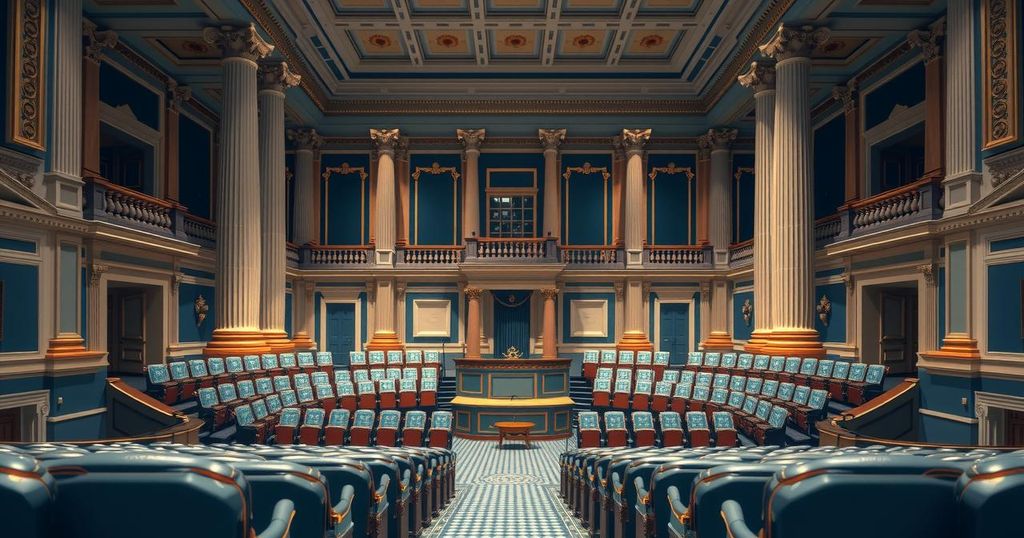Argentina’s Lower House approved President Milei’s Emergency Decree allowing IMF borrowing to bolster Central Bank reserves and manage debt, with significant political support despite notable opposition. The government emphasizes its commitment to combating inflation and enhancing economic stability, while recent protests illustrate ongoing social challenges.
On Wednesday, Argentina’s Lower House approved President Javier Milei’s Emergency Decree (DNU) with a vote of 129 in favor, 108 against, and 6 abstentions. This approval permits further borrowing from the International Monetary Fund (IMF) to bolster Central Bank reserves and manage the nation’s debt. The ruling La Libertad Avanza (LLA) party, alongside several other parties such as PRO and UCR, endorsed the decree. Opposition primarily emerged from the Peronist Unión por la Patria (UxP) and leftist groups.
The Office of the President celebrated the approval, stating: “President Milei thanks the 129 deputies, belonging to the great majority of the political blocs, who understood the mandate of the ballot boxes.” The statement emphasized the commitment to combating inflation as a critical state policy. It further articulated that the agreement would facilitate public credit operations to service existing Central Bank debt, contributing to a reduction in total public indebtedness.
Additionally, the statement highlighted, “Argentines made an enormous effort to achieve monetary, financial, and macroeconomic stability.” The government aims to foster economic stability, enhancing wage purchasing power and enabling companies to plan long-term amidst reducing inflationary pressures.
Milei underscored that, “The government will not rest for a minute until the disinflation process is definitive…” as he emphasized the imperative to eliminate exchange restrictions. It is noteworthy that Emergency Decrees require approval from either house of Congress to remain valid.
Furthermore, during the traditional retirees’ march outside Congress, many citizens expressed their support for improved wages and healthcare for the elderly. This protest unfolded under significant security, without major incidents, contrasting previous weeks’ turmoil which saw over 100 arrests and several injuries, including freelance journalist Pablo Grillo, who remains in critical condition. Reports show he is showing signs of recovery after medical intervention.
In light of recent developments, President Milei had to cancel a planned trip to Israel this coming weekend due to these ongoing issues.
In summary, the Argentine Lower House’s approval of President Milei’s Emergency Decree marks a crucial step towards enhancing the nation’s financial stability through IMF borrowing, aimed at addressing public debt. The government’s focus on combating inflation and fostering a stable economic environment resonates with its commitment to the citizens’ welfare. Despite challenges during recent protests, the administration is dedicated to effective governance and recovery efforts.
Original Source: en.mercopress.com






